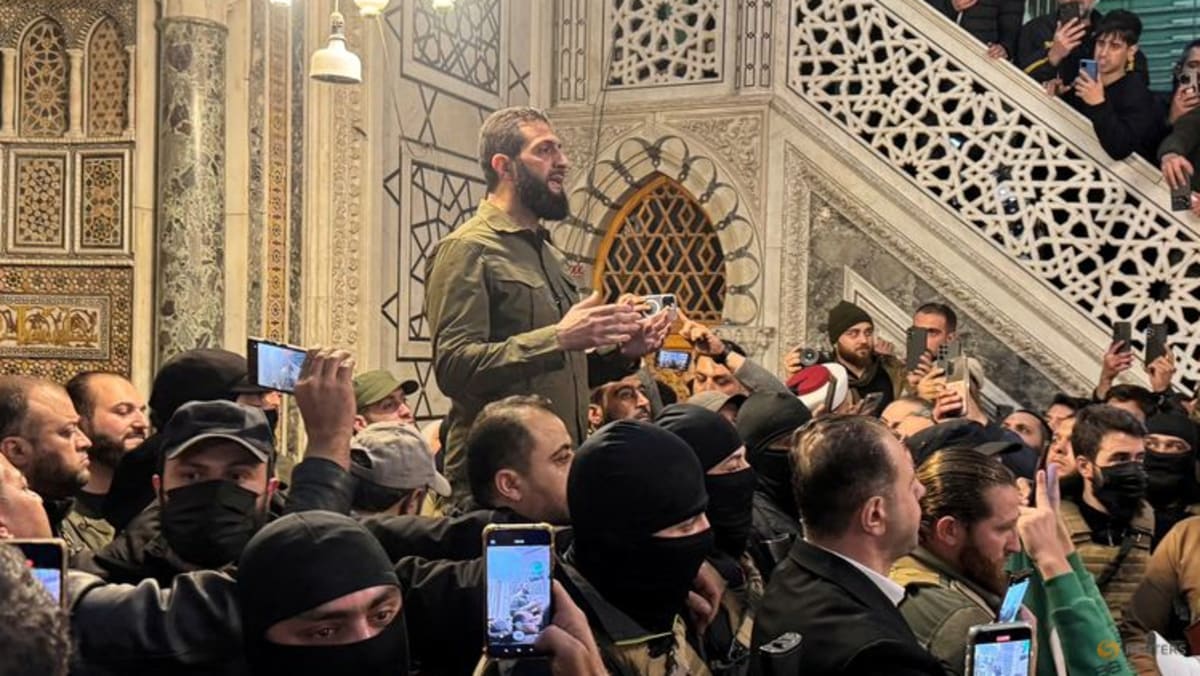THE MAKEOVER
Around 2015, we watched as Jolani began to distance himself from the Islamic State’s brand of global jihadist ideology and turn his focus to liberating Syria from Assad rule. Al-Nusra became HTS, but there were other shifts to come.
He started to change his appearance, trading in his militant garb for western blazers, ditched the turban favoured by jihadists, and trimmed his beard. More recently, he took on a more moderate tone in interviews with mainstream media, and began using his real name Ahmed al-Sharaa over his nom de guerre.
As a public relations strategy, the optics are good. Jolani-Sharaa is now more palatable to a world with little stomach for more extremism.
The UN’s envoy to Syria Geir Pedersen said the UN still regards HTS as a terrorist group, but that could change.
“It is nine years since that resolution was adopted and the reality so far is that the HTS and also the other armed groups have been sending good messages to the Syrian people, said Pedersen on Tuesday. “They have been sending messages of unity, of inclusiveness and frankly speaking, also we are also seeing in Aleppo and in Hama, we have also seen reassuring things on the ground.”
It’s an important pivot. Germany and France are now open to working with the rebel rulers if they respect human rights and the protection of minorities. In the US, outgoing President Joe Biden promised the country will help manage risks in the uncertainty, but it will be incoming US president Donald Trump who will inherit what’s to come, whether he thinks it’s America’s fight or not.
But before anyone can make any real future plans, eyes must first be on what the immediate future holds as rebels assert their newfound authority on the capital and attempt to rebuild the country, and on whether the Sunni leadership can win over other rebel factions – some still clashing in the northeast – as well as embattled citizens and minority groups like the Alawites, Shiites, Druze, Kurds, Yazidis and Christians.
